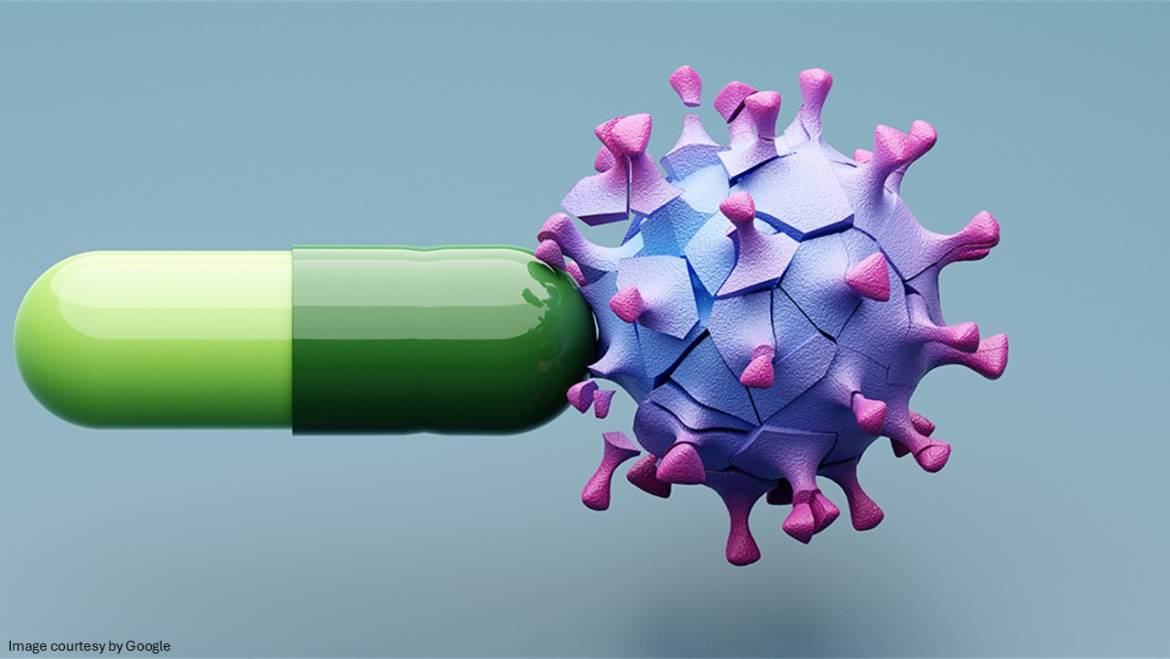Antivirals are a class of medications used to treat viral infections. These medications reduce symptoms and shorten the length of the viral infection. How does an anti viral work? Do they function like cells? Do they cure a viral infection? Read below to get the answers.
About antivirals
Does anti viral medication work? Yes, they help your body fight off certain viruses that can cause diseases. An anti viral medication has the potential to interfere with the replication of certain viruses. They are recommended to minimise the symptoms of an infection and shorten its duration. Antivirals are preventive, meaning they have the potential to protect you from contracting viral infections or spreading a virus to others.
Are viruses cellular? Viruses are not cellular; they are microscopic infectious agents that lack the potential to produce on their own.
Viral cell structure: They possess a cell-like structure, but they do not function like a cell; they have a basic structure consisting of genetic material (DNA or RNA), surrounded by a protein coat called a capsid. They enter the living cell and replicate using the host cell’s machinery within the cell.
Uses & working of Antivirals
Most viruses disappear without antivirals. Doctors recommend antivirals for the treatment of life-threatening or chronic viral infections, including flu (including H1N1), hepatitis B, hepatitis C, Human immunodeficiency virus (HIV), Coronaviruses like COVID-19, Ebola, and Mpox.
Anti viral medications help your body fight off infections. They work along with your body’s natural defences to keep you safe from the virus. They work in three different ways:
-
- Blocks receptors to which viruses usually adhere and stops entry to healthy cells in your body.
- Reducing the viral load (amount of virus) in your body.
- Enhance the immune system’s functioning, which helps it fight off viral infections.
Dosage and administration
Most antiviral medications are available as oral drugs that you swallow in pill form. However, in some cases, you may be able to receive antiviral medicines in the form of inhaled powders, eye drops, intravenous infusions, injections into a muscle, or topical creams or gels that are applied directly to the skin.
Advantages of using antivirals
Antivirals can cause a significant reduction in the severity of symptoms and clear up faster than they would without treatment. In some people, these medications can save a patient’s life or prevent complications associated with the infection that would occur if the condition were left untreated.
Cure viral infections – It usually depends on the type of viral infection you are suffering from. Some infections can be cured with the use of antivirals, but other (long-term) conditions can’t be cured. Antiviral medications can eliminate some of the viruses, such as the Flu and Ebola. These medications may help you eliminate these viruses.
Viral infections like HIV, herpes, and hepatitis are chronic. Antivirals can’t eliminate these viruses from your body once they have entered your body. However, they can render chronic viruses inactive, resulting in fewer symptoms. Generally, symptoms that develop while you take antiviral medications may be less severe or resolve faster.
Prevent the spread of viral infections – Antiviral functions in a way that helps you stay safe from certain viral infections after you are affected by the virus. These medications also prevent the spread of the infection from one person to another.
Within two days of getting infected with the flu, you may be protected from getting sick with the use of antiviral medications. If it’s been three days since a potential HIV exposure, taking the antiviral medication can lower the chances of getting infected. Everyday intake can reduce the risk of spreading HIV and Herpes to others or getting them from a sexual partner who is already having it.
Antiviral medications reduce the risk of pregnant females passing the virus to their unborn, and after delivery, the baby will also receive antiviral after they are born.

Safety of antivirals
Antivirals are safe to use if used under the supervision of a healthcare professional. It is essential to follow the instructions carefully when taking these medications and to continue taking them for the prescribed period. These medications are well-tolerated and safe to take with other medications. However, it is always helpful to inform your healthcare professional of all the prescription and non-prescription medicines (including herbal supplements, vitamins, and minerals) you are taking. You will be instructed by your healthcare provider on which medication or supplements you need to change and which ones to stop or avoid temporarily while you are receiving antiviral treatment.
Possible side effects
The side effects of antiviral medications typically depend on the specific medication being used and the strength of the dose. An individual taking an antiviral medication may experience diarrhoea, cough, dizziness, dry mouth, fatigue, insomnia, joint pain, skin rash, headaches, muscle pain, nausea, vomiting, etc.
Do not discontinue treatment without consulting your healthcare specialist. Missing doses or starting or stopping an antiviral medicine can allow the virus to adapt to the medicine, making it less effective (antiviral resistance develops). It is essential to inform your healthcare professional about any adverse effects that your medications may have. This way, they will let you know what to expect and will tell you when you should discontinue treatment or change the dosage of your medication.
Recovery from an antiviral infection
The duration of taking an antiviral medication generally depends on the specific medicine your body requires and the type of infection you have. Like, some oral medications are generally required only for one or two weeks. Whereas some antiviral medications that are injected only require a single infusion. If you are suffering from a chronic infection like HIV, you may require this medication every day for the rest of your life. For viruses like HIV, it is important to take these medications daily to keep the virus from becoming active and reduce the chance of spreading the infection to others.
When to ask for medical help
Your healthcare specialists will inform you when you come in for follow-up treatment or any additional medical tests. They will monitor your condition and ensure that the antiviral medication you have been prescribed is working effectively. In the case of a chronic condition, it is essential to undergo regular checkups for effective management of the infection and to get checked for maintaining overall health. Seek immediate medical attention if you notice worsening symptoms of an infection.



